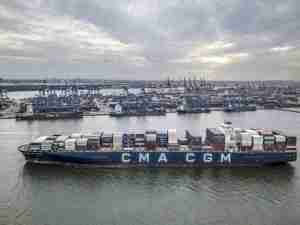Our close allies and friends are going through very difficult times, a situation well beyond anything we could have ever anticipated. Fortunately, things are slowly starting to improve for the thousands of citizens affected by Hurricane Katrina, as relief efforts expand in the southern region of the US.
The Government of Canada offered to help where we could, and our neighbors have accepted that offer. That is what being friends and allies is all about - being there in times of need.
Canada and the CF stand by its neighbor and will provide the necessary resources to help its closest ally and friend in its time of need.
The CF has moved quickly to contribute to the ongoing support provided by the Government of Canada to the US relief effort in the wake of Hurricane Katrina. Ships, aircraft and CF personnel from the Navy, Army and the Air Force are deploying to the affected area to provide much needed assistance.
Today, we are helping our friends and neighbors in difficulty. It is our duty to assist them and we will go as far and will stay for as long as necessary to accomplish our mission. We join them in their efforts and will not let them down. They would do the same for us if we were in need.
Overall, more than 1,000 Canadian Forces personnel will constitute our initial contribution to the colossal relief efforts underway south of the border.
Sequence of events:
- The Canadian Forces is sending a composite team of navy divers from the Fleet Diving Units in Esquimalt, BC and Halifax, NS, augmented by army Combat Engineer divers from 4 Engineer Support Regiment, C.F.B. Gagetown, NB. The first divers departed Esquimalt for Naval Air Station (NAS) Pensacola, Florida, by CF CC-130 Hercules the morning of September 4. Another group of divers from Halifax departed by CF CC-130 Hercules aircraft during the evening of September 4. The divers will move forward to NAS Pascagoula, Mississippi. The remaining members of the team departed on September 5. In total, over 35 divers, liaison and administrative staff have deployed.
- The divers will work with the 2nd Amphibious Group of the 2nd Fleet, US Navy, and their responsibilities will include among others the identification and removal of hazards to navigation and levee inspection. The exact location of employment is still to be confirmed.
- The CF is also sending two officers from the Canadian Forces Joint Operations Group based in Kingston, to support Brigadier-General Mark McQuillan, the CF Liaison Officer to US Northern Command in Colorado Springs, and to assist in the planning of any future potential CF deployments related to Hurricane Katrina. The officers departed Kingston on September 4.
- On September 3, the Canadian Air Force transported 27 Canadian Red Cross and five FAC officials to Houston, Texas.
- On September 2, the Canadian Forces announced it would send three Canadian ships as part of the Government of Canada contribution to the relief efforts in the affected region in the southern United States. The ships will work with the 2nd Fleet, United States Navy.
The following ships are deploying:
HMCS Athabaskan (an Iroquois class destroyer), HMCS Ville de Quebec and HMCS Toronto (Halifax class frigates). Three embarked sea king helicopter detachments will also deploy. The Canadian Coast Guard Ship (CCGS) Sir William Alexander will sail along with the Canadian navy vessels.
- The ships will travel as a naval task force group and are scheduled to depart Halifax in the afternoon of 6 Sep 05. Transit to the affected area is expected to take four days.
Support to US Search and Rescue
- Although not part of Operation UNISON 2005, Canada's Air Force has sent two CH-146 Griffon helicopters to assist the United States Coast Guard (USCG) in covering the Boston Search and Rescue (SAR) area of responsibility over the








